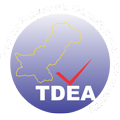Free and Fair Election Network (FAFEN) is launching a nationwide citizens’ campaign to urge political parties to take up an election reforms agenda as one of their policy and legislative priorities in line with the promises they made during General Election 2013.
Although the results of General Election 2013 have been challenged by all major contenders, including the ruling party, regrettably no efforts towards election reforms have been made by any party that alleged foul play. In fact, except for Finance Bill 2013, the Parliament has yet to enact any new legislation during its first year.
While the electoral experience is still fresh and almost 400 election disputes are pending before the election tribunals, political parties should introduce critical reforms in the constitutional, legal and procedural frameworks that govern electoral processes in order to improve the quality of future elections and ensure political stability.
FAFEN believes that electoral reforms have been long overdue and need urgent political attention. As part of its advocacy campaign, FAFEN is gathering public views on the recent elections to help define the priorities for electoral reforms. The campaign is being launched at the constituency, district, and provincial levels by engaging political parties, civil society, media, professional associations, trade unions, students, and other citizens in 33 districts and 83 constituencies across the country.
More than 8,000 people will be part of FAFEN’s consultation process, including 1,500 representatives of civil society organizations, 750 political party representatives, 750 university students, 750 media personnel, and at least 2,000 other citizens. FAFEN will also host four provincial consultations and one national conference with Members of Parliament.
FAFEN will make its formal recommendations for electoral reforms after these consultations and analysis of all phases of General Election 2013, including resolution of election disputes by the tribunals. These recommendations will assist political parties and parliamentarians in developing an electoral reform agenda for improving the quality of future elections.
FAFEN has been advocating for long-ranging election reforms since 2008, based on data gathered by almost 20,000 non-partisan election observers in 2008, and more than 40,000 observers in 2013. Many of FAFEN’s 2008 recommendations were adopted for the 2013 General Elections, and FAFEN hopes for continued progress on the critical issues remaining to improve the quality of Pakistan elections.
















